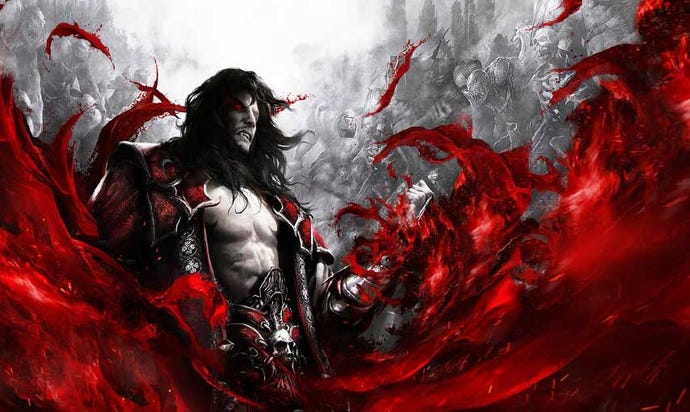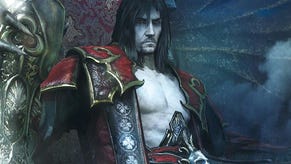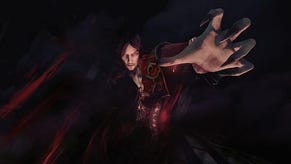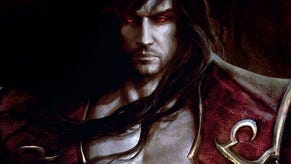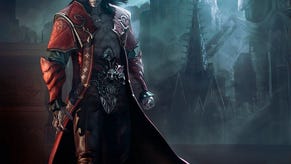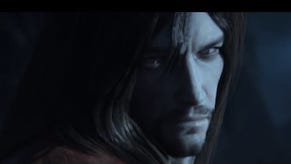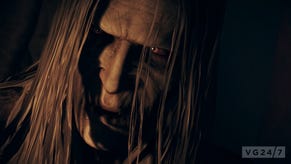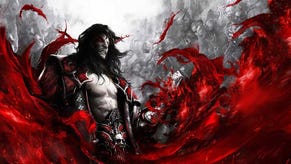Castlevania: Lords of Shadow 2 takes a stab at sympathy for the devil
Castlevania: Lords of Shadow 2 has you playing Dracula - the bad guy. But can you really sympathise with the villain? We take our questions to producer Dave Cox.
Writing is hard. Writing for video games is harder. It's no wonder so many video games stick to fairly simple stories, with characters defined in blocks of black and white. "Kill the evil terrorists." "Save the puppies."
Although it's not the first game to try it, Castlevania Lords of Shadow 2 casts you as a villain, in an attempt to investigate how a person goes from everyday joe to genocidal killing machine. MercuryStream is sketching in shades of grey. I asked producer Dave Cox why players are stepping into the bad guy's shoes this time.
"Well, is he a bad guy? That's the question we're asking the players to find out, really," he replied.
"I think the story of Gabriel-Dracula is a story worth telling. We wanted to show the descent of the character and how he became Dracula. We're trying to ask some important questions about what makes people evil, what makes them do what they do.
"Oftentimes, evil people are portrayed in a kid of black and white fashion. I don't think evil people think they're doing evil things. I think sometimes they think they're doing the right thing. It's others' perception of them.
"We wanted to move away from the Bela Lugosi-type character that he was in the previous games. We wanted to tell a believable story about vampires, about evil, and about a man's descent into evil.
"On the surface, you can play the game and go, yeah, this is an evil guy, but I think there are some important moral questions that we ask of the player."
Dracula "absolutely", "definitely" does commit evil acts, Cox admits. Dracula sucks people's blood, and murders people - sometimes in ways that seem questionably tasteful, to put it mildly.
"But he's conflicted. There are many forces at work in the game trying to redeem Dracula, trying to make him leave the castle and move on. But there's a conflict within himself that he needs to resolve," Cox said.
"That conflict is 'Do I want to be redeemed? Do I want to find peace? Do I want to save the world again? Or am I quite happy to rule the world? Am I quite happy to be the only kid in town because I want to use these people as my food?' That's the kind of question the player will be mulling over."
Apart from the actively eating people, nothing Cox told me, or that I've seen in trailers for the game, has looked that dramatically evil to me - or that different from what any nominally "good" video game character does in their traipse through 15 action-packed levels of terrorist/nazi/rival conglomerate-killin' fun. How is Dracula, in his quest to save the world from Satan by clambering around levels, solving puzzles, and fighting also-bad guys, that different from, say, Uncharted's Nathan Drake, a "good" guy who also spends a lot of time ruthlessly killing hordes of enemies for the greater good?
"I don't think Nathan Drake's a great comparison," Cox said hesitantly. "Because he's quintessentially your typical action hero.
"I think Dracula in our game is a much more nuanced character. You see Dracula show love, you see Dracula show remorse, you see Dracula show anger. Looking for vengeance. You see Dracula commit violence against other people, but you also see him treat people with care and love."
Is it just me, or does that sound exactly like Nathan Drake, who thanks to Naughty Dog's cinematic leanings and emphasis on performance runs the emotional gamut in every cut-scene, right before hauling off to despatch another dozen or so varyingly powerful enemies (sometimes vengefully) in carefully designed combat arenas? Dracula may be a new kind of vampire, but he doesn't necessarily sound like a new kind of game hero.
"I don't know if Dracula is a hero," Cox insisted. "Perhaps he started off with heroic intentions. I've not played many Uncharted games, but Nathan Drake always struck me as an Indiana Jones kind of character.
"We use the Tony Soprano analogy. Tony Soprano is a murderer, a killer, and does horrible horrible things, but you watch The Sopranos and you find yourself rooting for this character. It's quite a hard thing to do. That's something we tried to achieve with this character. We wanted players to be repelled at times, but also to think, 'I like this character. This is a character that I want to spend some time with'. You will be spending a good 20 hours with this character, so it was important that we didn't portray him in a way that would alienate players.
"For me, he is an interesting character because he could be the good guy; he could be the bad guy. It's not something I want to reveal in an interview. It's a question we ask often during the game."
Dracula's story is one that Cox and his team apparently feel requires 20 hours to tell; it's not something that can be summed up in our brief chat, especially if we want to avoid giving spoilers. Cox refused to tell me why it is Dracula struggles with the question of redemption, why the story of Dracula taking down Satan is more complicated than a simple antagonist-versus-protagonist tale.
"I think Dracula knows what he wants to do. It's up to the player to find out," Cox said.
"Dracula knows what he wants to do. It’s up to the player to find out."
I said before that writing is hard. Writing bad guys is especially hard. Your hero needs something to fight against, and if your hero is right, that thing has to be wrong. Coming up with a justification for a villain, making the bad guy too sympathetic, can make the protagonist's own actions look dodgy. That's why so many villains, in all kinds of media, are ridiculous, doing bad things for the sake of it; doing bad things so that the viewer knows the villain is bad, rather due to any particular motivation.
In Lords of Shadow 2, MercuryStream has the unenviable task of juggling both sides of the hero and villain dichotomy at once. It's kind of a vicious cycle. Dracula is a bad guy - he has to do bad things. Because bad things are bad, the player needs to sympathise and understand why he does them. Then again, they really do have to be bad - they have to make us uncomfortable, to show that Dracula is a bad guy.
Continuing our artistry analogy from above, this is the sort of work that requires very fine, subtle instruments - nicely honed graphite, a delicate touch. Unfortunately, most of the tools of the trade of video games are more crayons, or perhaps sledgehammers. I will be very interested to play Lords of Shadow 2 in full and see if the team pulls it off, but whether it succeed or not, the latest Castlevania deserves applause for making the attempt.
Castlevania: Lords of Shadow 2 arrives on PC, PlayStation 3 and Xbox 360 at the end of February.
